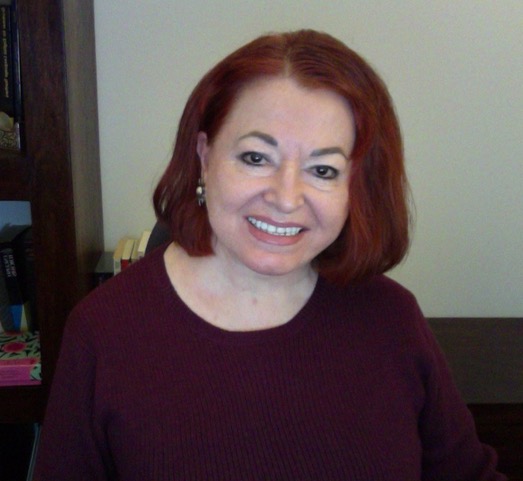The following interview is part of an interview series in which we feature education professionals from a variety of different fields in order to highlight individual efforts and creative solutions to education in the 21st century.
1. Who are you and what do you do in education?
I’ve been involved in language teaching for many years. I’ve taught English as a Second or Foreign Language in the UK, Bulgaria, Canada, and Spain. More recently I taught in the teacher education program at the University of Toronto, in Canada. Almost 8 years ago I left Canada to live in Barcelona, Spain, where I founded Real Spanish, a website for advanced learners of Spanish. I’d like to tell you how I got the idea.
 When I came to live in Barcelona, I had already taken quite a few Spanish courses. I had a good vocabulary and an intermediate-advanced level of grammar… Although I have to confess that my pronunciation was terrible, and still leaves a lot to be desired.
When I came to live in Barcelona, I had already taken quite a few Spanish courses. I had a good vocabulary and an intermediate-advanced level of grammar… Although I have to confess that my pronunciation was terrible, and still leaves a lot to be desired.
When I arrived I found my Spanish was not as good as I thought it was. I was very disappointed when it came to talking with native speakers. They spoke so fast, and used so many expressions that I didn’t know! And I lacked confidence and fluency. Unfortunately, I found that most language schools don’t go beyond level B2, because there are seldom enough learners to form a class.
But one day I caught an episode of a TV series, and I was hooked. The series was really funny and used loads of colloquial language. I began to choose interesting scenes to analyse and study in depth. I watched the scene several times. This helped with my listening comprehension. Then, with the help of an online dictionary, I made a list of new words and phrases. I learned so many colloquial expressions! I also learned a lot about the history and culture of Spain.
I realised that the same approach could be used to develop engaging online Spanish courses to help other people who, like me, wanted to improve their ability to use everyday, colloquial language. And that’s how Real Spanish began.
For three years I’ve been working with a team of Spanish speakers from several different Hispanic countries, choosing short clips from films and TV, and developing learning materials and interactive activities based on the content of the clips. We also have some interactive pronunciation lessons to improve listening comprehension and fluency.
2. Describe a typical workday in your life!
In theory I’m retired, so I no longer work full eight-hour days. I work from home, choosing my own hours, and usually do 3-4 hours a day, including weekends. I work in close collaboration with Gema, a native Spanish teacher. I live in Barcelona and she lives in the south of Spain and in the UK, so all our work is done remotely. We have met in person though, when we’ve been able to be in the same city at the same time.
We write scripts for our virtual lessons, which consist of animated videos narrated by our virtual teachers Carmen and Juan. Then we develop various support materials such as transcriptions, vocabulary lists, grammar notes, and some interactive online learning tasks. I enjoy this creative work very much. Recently I have been creating short mini-lessons for our YouTube channel, and this is fun. I don’t enjoy the business and marketing side so much, but obviously it doesn’t matter how good our product is if nobody knows about it!
I still watch Spanish TV and I read a lot of Spanish novels too. I have a circle of Spanish-speaking friends and I coordinate a Spanish book club for learners of Spanish. This is a bit different from other book clubs because we don’t all read the same book. Since we are all at different levels in Spanish, we choose our own material and then meet to talk about it. It’s a fun group and we talk about many other things as well. And we usually have great snacks! I’ve missed it during the Coronavirus crisis but we’ll get going again in September.
3. In what way has technology in general and the net in particular changed your work?
I’ve always taught in classroom settings, so this has been a completely new way of working for me. I’d always used the Internet for research, and still do, but now I know how to create an animated movie with online software, how to write a script for the voice artists and video editor, how to add visual and sound effects, how to upload material to YouTube and Facebook, how to embed online activities into our web page, and many other skills. It’s been exciting!
4. What challenges do you see for education in the future?
I still think that face-to-face interaction among students is an important aspect of learning, especially for language learning, because language is a social phenomenon. It’s a challenge to create a face-to-face interactive learning environment online in real time. As more and more students turn to the Internet, online meetings through Zoom or Skype have become more important. I think it takes special skills to manage the interaction so that it’s positive, useful, and engaging for all learners in the online group.
5. Where can we find you online?
Real Spanish: realspanish.eu or realspanish.eu/en
Blog: realspanish.eu/blog
Facebook: facebook.com/realspanish.eu
